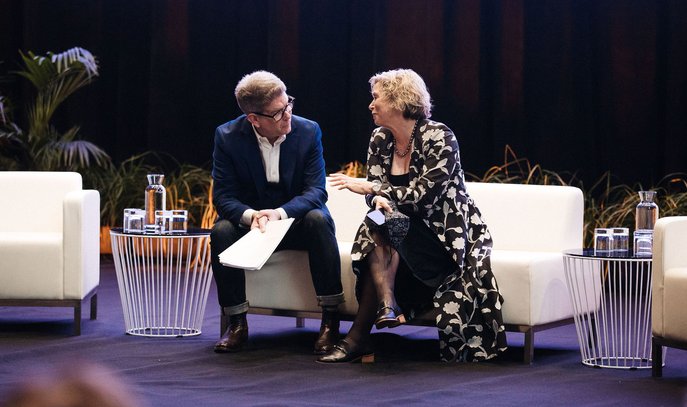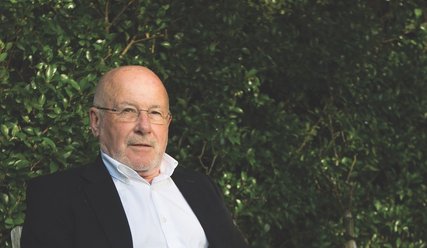John Campbell on the art of unravelling stories without unravelling yourself
It takes a special kind of person to show up and hold space for others day after day. It takes practice and patience to master the art of listening. To understand what is being said, and often more importantly to what is not being said. Just like our membership of GPs and rural hospital doctors, John Campbell is an expert listener, so we invited him to speak at GP22: the Conference for General Practice.
For over three decades he has been the person that people to turn to with their stories of joy and of grief. John’s talent for connecting with people was demonstrated beautifully as he addressed the 500 plus GPs and rural hospital doctors in the room. His insights struck a chord, and as he shared his experiences, some remarkable parallels between his journalistic world and general practice became clear.
“Everyone in this room believes in our capacity to help. That’s why we are here. We feel better when someone leaves the room being heard and having understood that you care about them. That’s where we ground ourselves.”
"'For me, I ask myself, did I tell their story? Did I shine light into a dark corner and give someone a voice that they did not previously hold. If I can say yes to that, then I feel like I have purpose.”
It feels unbalanced to talk about the joy that comes with being able to do good, without also touching on the burden and the weight this carries. John mentioned at times wanting to be someone other than himself. In that brief moment before someone would approach him in public and start spilling their story and often their tears, how he would question whether or not he had it in him to stop and to listen.

“There is an art to surviving the weight of what you see and know. And there is a toll that surviving can take. There is a requirement to still do your job, in moments where you are sharing someone’s grief, their sadness, their tragedy. The next patient is nearly always waiting.
"How do you do that without becoming so thick skinned that no feeling can get in. How do we do that without becoming unspeakably sad?
You find an island to swim towards.”
John wasn’t talking about a week in Fiji, sipping cocktails and reading on the beach. This was a much humbler island than that. For years, John’s island was the Saturday morning rugby. Watching his young son and his teammates let loose on a muddy field.
“It was the absurdity of the kid’s rugby, the more ridiculous the better. The villainy of the ref, when they are a parent of a player on the other team. All the parents and grandparents, lined up on the side-lines, getting lost in something precious. Lost in something that is not just about the kids, but about something other than the weight of the week. And at the end of it all, we could face the world with hope and possibility.”
Forgive yourself for not being able to show up for everything but commit yourself to showing up for this one thing. Change the subject and dive deep into something other than your work. Pick something that fills your cup and gives you life. A pancake breakfast on Sundays. A weeknight movie.
Find your island. Look over the waves. Swim towards it.
When the floor opened for questions, John was asked about dealing with fake news. Over the last year, the spread of COVID-19 misinformation has created a new challenge for healthcare providers. Doctors around New Zealand have stepped up to debunk the myths that have gone viral on social media, and to soothe the anxieties that these have caused in the community. John shared that combatting fake news continues to be one of the biggest challenges in public broadcasting and is a battle we should be ready to meet head on.
“We shouldn’t allow people to believe lies unchallenged. We can’t just leave them to it. If we limit ourselves and look down our nose at people that we don’t agree with, then we leave them to the predations of the people who don’t roll their eyes at them.
"Fake news exists because of a failure of connection. We need to focus on being more reflective and have more accurate representation. For people to engage with us they need to see themselves.”
The spread of misleading information about COVID-19 has dominated the social media and digital space. John spoke about the importance of using these channels to deliver the right information to people in a way that they will understand it. To which Dr Vanisi Prescott then asked, “Will you be in a TikTok with me?” (His answer was yes, and you can see it here.)
At a first glance, a life dedicated to public broadcasting and one to primary care might seem worlds apart. But up close, the weight of the work is not entirely different. John understands the mahi, and he understands the toll that it takes. He is driven by a desire to do good by people. To shine a light in the dark, to connect with people, and to make people feel seen. And for the room full of doctors in front of him at GP22, he did just that.
